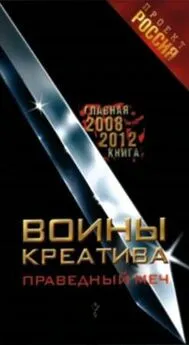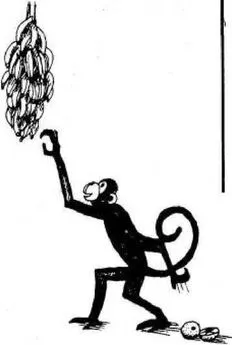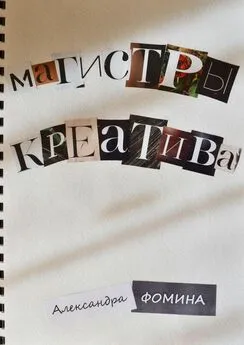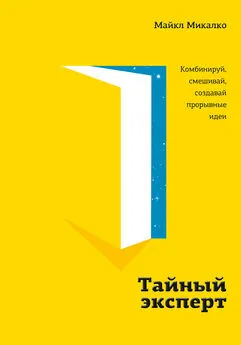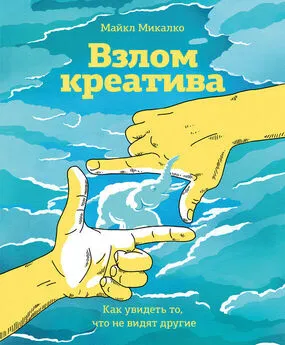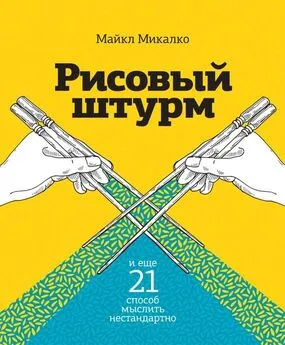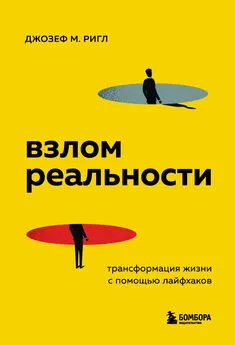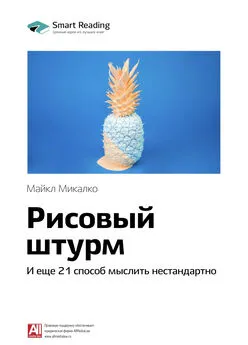Майкл Микалко - Взлом креатива
- Название:Взлом креатива
- Автор:
- Жанр:
- Издательство:Манн, Иванов и Фербер
- Год:2015
- ISBN:9785000576465
- Рейтинг:
- Избранное:Добавить в избранное
-
Отзывы:
-
Ваша оценка:
Майкл Микалко - Взлом креатива краткое содержание
Взлом креатива - читать онлайн бесплатно ознакомительный отрывок
Интервал:
Закладка:
Надеюсь, что стратегии, изложенные в этой книге, покажут вам альтернативные пути обдумывания проблем. При этом вы переосмыслите свой взгляд на мир и, подобно тем китайским крестьянам, наконец-то заметите то, что у вас прямо перед глазами.
БЛАГОДАРНОСТИ
У писателей принято благодарить многих людей, помогавших им при создании книги. Мне тоже помогали многие. Однако на этот раз я хотел бы печатно поблагодарить лишь одного человека, который оказал мне самую весомую помощь, и не только с этой книгой, но и вообще в жизни. Я благодарю Пат Леман из Марко-Айленда, штат Флорида, за ее остроумие, мудрость и веру. Помимо всего прочего, она научила меня стремиться к большему, чем то, на что я способен сейчас, а иначе, как она говорит, зачем вообще жить?
БИБЛИОГРАФИЯ
Albert, Robert S. “Genius: Present-Day Status of the Concept and Its Implications for the Study of Creativity and Giftedness.” American Psychologist , 24: 743–753.
—, ed. Genius and Eminence. Woburn, MA: Butterworth-Heinemann, Pergamom Press, 1992.
Andersen, P. and D. Cadbury. Imagined Worlds: Stories of Scientific Discovery. London: Ariel Books, 1985.
Anderson, Emily. The Letters of Mozart and His Family , second ed. New York: W. W. Norton, 1986 (Моцарт В. А. Полное собрание писем. М.: Международные отношения, 2006).
Arieti, S. (1976). Creativity: The Magic Synthesis. New York: Basic Books, 1976.
Arnheim, R. Picasso’s Guernica: The Genesis of a Painting. New York: Oxford University Press, 1962.
Ashton, Dore. Picasso on Art: A Selection of Views. New York: Da Capo Press, 1988.
Barnes, Jonathan, ed. The Complete Works of Aristotle. Princeton: Princeton University Press, 1983 (Барнс Дж. Аристотель: Краткое введение. М.: АСТ, Астрель, 2006; Аристотель. Сочинения: В 4 т. М.: Мысль, 1976–1983).
Barron, F. Creative Person and the Creative Process. New York: Holt, Rinehart and Winston, 1969.
—, and D. M. Harrington. “Creativity, Intelligence, and Personality.” Annual Review of Psychology 32 (1981): 439–476.
Bell, Eric. Men of Mathematics. New York: Simon & Schuster, 1986 (Белл Э. Творцы математики. М.: Просвещение, 1979).
Bellak, L. “Creativity: Some Random Notes to a Systematic Consideration.” Journal of Protective Thinking 22 (1984): 363–380.
Bennis, Warren, and Patricia Biederman. Organizing Genius: The Secrets of Creative Collaboration. Reading, MA: Addison-Wesley, 1996.
Bernadac, Marie-Laure, and P. Dubouchet. Picasso: Master of the New Idea. Trans, by Carey Lovelace. New York: Harry N. Abrams, 1993.
Boden, M. The Creative Mind: Myths and Mechanisms. New York: Basic Books, 1991.
Bohni, D., and F. P. Peat. Science, Order, and Creativity. New York: Bantam Books, 1987.
Bohr, Niels. Atomic Theory and the Description of Nature. Woodbridge, CT: Ox Bow Press, 1987 (Бор Н. Атомная физика и человеческое познание. М.: Изд-во иностр. лит., 1961).
Bouchard, Thomas J., and M. Hare. “Size, Performance, and Potential in Brainstorming Groups.” Journal of Applied Psychology 54 (1970): 51–55.
Bramly, S. Leonardo: Discovering the Life of Leonardo da Vinci. New York: HarperCollins, 1991.
Brian, Denis. Genius Talk: Conversations with Nobel Scientists and Other Luminaries. New York: Plenum Press, 1995.
Briggs, J. Fire in the Crucible. New York: St. Martin’s Press, 1990.
Briskman, L. “Creative Product and Creative Process in Science and Art.” Inquiry 23 (1991): 83–106.
Burke, James. The Pinball Effect. New York: Little, Brown and Company, 1997 (Берк Дж. Пинбол-эффект. М.: Изд-во студии Артемия Лебедева, 2014).
Callow, Philip. From Noon to Starry Nigh t: A Life of Walt Whitman. New York: Ivan R. Dee, 1992.
Campbell, D. T. “Blind Variation and Selective Retention in Creative Thought as in Other Thought Processes” Psychological Review 67 (1960): 380–400.
—. “Unjustified Variation and Selective Retention in Scientific Discovery.” In Studies in the Philosophy of Biology , edited by F. J. Ayala and T. Dobzhansky, pp. 139–161. London: Macmillan, 1974.
Cannon, W. B. “The Role of Chance in Discovery.” Scientific Monthly 50 (1940): 204–209.
Chastel, A. The Genius of Leonardo da Vinci. New York: Orion Press, 1961.
Chomsky, Noam. Language and Mind. New York: Harcourt Brace College Pubs., 1972 (Хомский Н. Язык и мышление. М.: Изд-во МГУ, 1972).
Clark, D. Great Inventors and Discoveries. London: Marshall Cavendish Books, 1978.
Clark, R. W. Einstein: The Life and Times. New York: World, 1971.
Conot, Robert. Thomas A. Edison: A Streak of Luck. New York: Da Capo Press, 1986.
Cox, Catharine. Early Mental Traits of Three Hundred Geniuses. Stanford, CA: Stanford University Press, 1926.
Crandall, R. “The Relationship Between Quantity and Quality of Publications.” Personality and Social Psychology Bulletin 4 (1978): 379–380.
Cropper, A. J. The Quantum Physicists. New York: Oxford University Press, 1970.
Csikszentmihalyi, Mihaly. Flow: The Psychology of Optimal Experience. New York: HarperCollins, 1991 (Чиксентмихайи М. Поток: Психология оптимального переживания. М.: Альпина нон-фикшн, 2011).
Culhane, John. Walt Disney’s Fantasia . New York: Harry N. Abrams, 1987.
Darwin, Charles. The Autobiography of Charles Darwin (1809-1882). New York: W. W. Norton, 1993 (Дарвин Ч. Воспоминания о развитии моего ума и характера // Дарвин Ч. Сочинения. Т. 9. М.: Изд-во АН СССР, 1959).
Darwin, Francis, ed. The Life and Letters of Charles Darwin. New York: Appleton, 1911 (Дарвин Ф. Воспоминания о повседневной жизни моего отца // Дарвин Ч. Сочинения. Т. 9. М.: Изд-во АН СССР, 1959).
—, ed. The Autobiography of Charles Darwin and Selected Letters. New York: Dover, 1958.
De Mille, Agnes. Martha: The Life and Work of Martha Graham. New York: Random House, 1992.
Dennett, Daniel. Kinds of Minds. New York: Basic Books, 1997 (Деннет Д. Виды психики: на пути к пониманию сознания. М.: Идея-Пресс, 2004).
Detolnay, C. Michelangelo: Sculptor, Painter, Architect. Princeton, NJ: Princeton University Press, 1975.
Eiseley, L. Darwin’s Century: Evolution and the Men Who Discovered It. New York: Anchor Books, 1961.
Everdell, William. The First Moderns. Chicago: University of Chicago Press, 1997.
Feynman, Richard. Surely You’re Joking, Mr. Feynman: Adventures of a Curious Character. New York: W. W. Norton, 1997 (Фейнман Р. Вы, конечно, шутите, мистер Фейнман! Ижевск: РХД, 2002).
Finch, Christoper. The Art of Walt Disney. New York: Harry N. Abrams, 1995.
Findlay, C. and C. Lumsden. “The Creative Mind: Toward an Evolutionary Theory of Discovery and Invention.” Journal of Social and Biological Structures 11 (1988): 3–55.
Finke, Ronald, ed. Creative Imagery: Discoveries and Inventions in Visualization. Hillsdale, NJ: Erlbaum, 1990.
Freud, Sigmund. A General Introduction to Psychoanalysis , reprint ed. New York: W. W. Norton, Liveright, 1989 (Фрейд З. Введение в психоанализ. СПб.: Алетейя СПб., 1999).
—. An Autobiographical Study , reprint ed. New York: W. W. Norton, 1989.
Garcia, Emanuel. Understanding Freud: The Man and His Ideas. New York: New York University Press, 1992.
Gardner, Howard. Arts and Human Development: A Psychological Study of the Artistic Process. New York: Wiley, 1973.
—. Frames of Mind , reprint ed. New York: Basic Books, 1993 (Гарднер Г. Структура разума: теория множественного интеллекта. М.: Вильямс, 2007).
—. The Mind’s New Science. New York: Basic Books, 1987.
—. Art, Mind, and Brain: A Cognitive Approach to Creativity. New York: Basic Books, 1984.
—. Creating Minds. New York: Basic Books, 1994.
Gedo, John. Portraits of the Artist. Hillsdale, NJ: Analytic Press, 1989.
Centner, D. “Structure-Mapping: A Theoretical Framework for Analogy.” Cognitive Science 7 (1983): 155–170.
Getzels, J., and Mihaly Csikszentmihalyi. The Creative Vision: A Longitudinal Study of Problem Finding in Art , New York: Wiley-Interscience, 1976.
Gilbert, D. T. “How Mental Systems Believe.” American Psychologist 46 (1991): 107–119.
Gilot, Francoise, and Carlton, Lake. Life with Picasso , New York: Doubleday, 1989 (Жило Ф., Лейк К. Моя жизнь с Пикассо. М.: ОЛМА-Пресс, 2001).
Gleick, James. Genius: The Life and Science of Richard Feynman. New York: Pantheon, 1992.
Goldsmith, D. The Ultimate Einstein , New York: Simon and Schuster, 1997.
Gordon, W. Synectics: The Development of Creative Capacity. New York: Dutton, 1961.
Grosvenor, Edwin, and Morgan, Wesson. Alexander Graham Bell New York: Harry N. Abrams, 1997.
Gruber, H. E. Darwin on Man , second ed. Chicago: University of Chicago Press, 1982.
—, and S. N. Davis. “Inching Our Way to Mount Olympus: The Evolving Systems Approach to Creative Thinking.” In The Nature of Creativity , edited by R. J. Sternberg, pp. 243–270. New York: Cambridge University Press, 1988.
—. M. Terrell, and M. Wertheimer, eds. Contemporary Approaches to Creative Thinking. New York: Atherton Press, 1962.
Guilford, J. P. Intelligence, Creativity, and Their Educational Implications. San Diego: EDITS Pubs., 1968.
—. “Intellectual Resources and Their Values As Seen by Scientists.” In Scientific Creativity , ed. by C.W. Taylor and F. Barron, pp. 101–118. New York: Wiley, 1963.
—. The Nature of Human Intelligence. New York: McGraw-Hill, 1967.
Hadamard, J. An Essay on the Psychology of Invention in the Mathematical Field. Princeton, NJ: Princeton University Press, 1945 (Адамар Ж. Исследование психологии процесса изобретения в области математики. М.: Советское радио, 1959).
Читать дальшеИнтервал:
Закладка:

